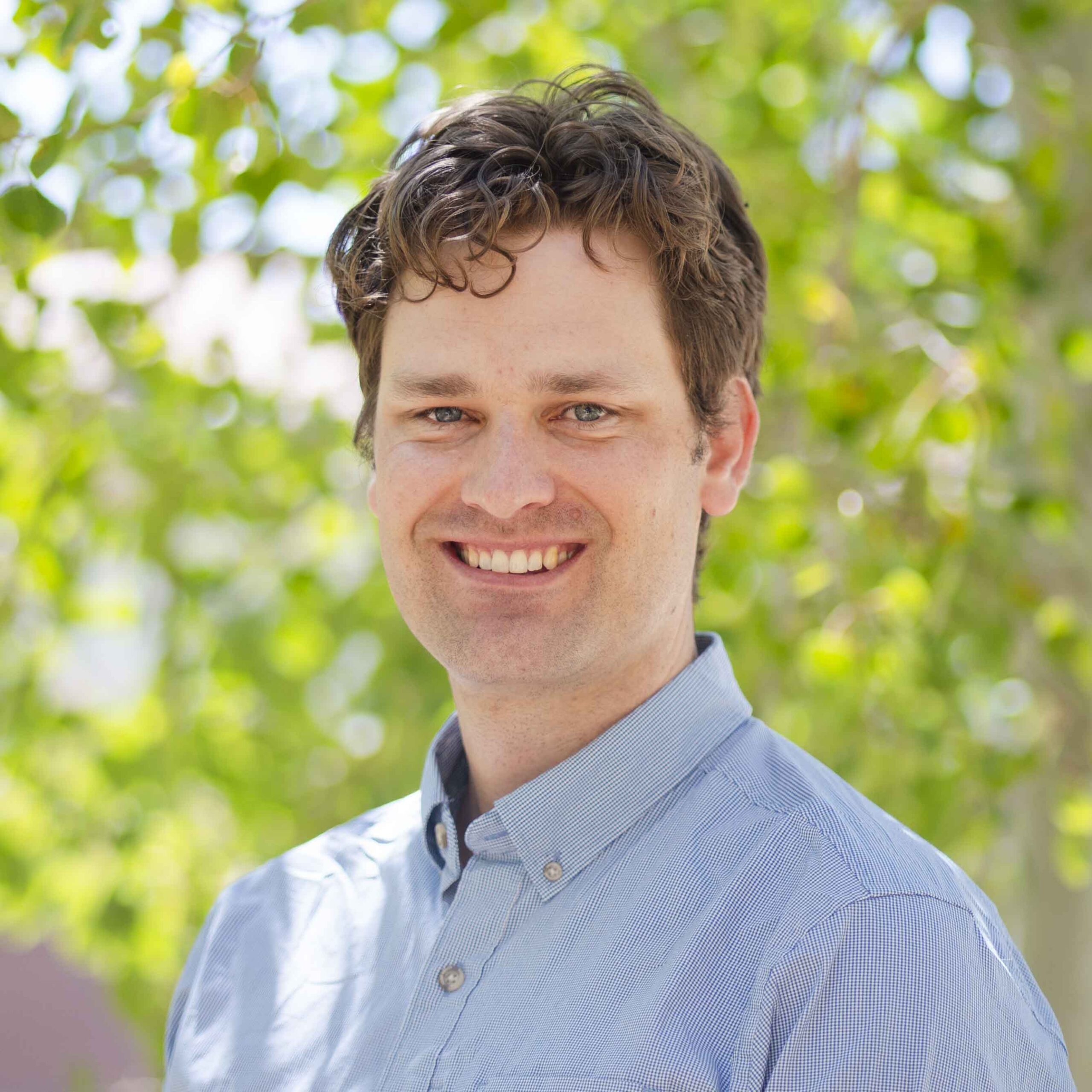

Alexander Alleman PhD
Assistant Professor of Chemistry
Contact Information
Academic Divisions
Natural & Environmental Sciences DepartmentEducation
PhD, Washington State University, Molecular Plant Science, 2021BS, Western Colorado University, Biochemistry, 2014
Biography
How did you discover Western?
I discovered Western as an undergraduate here where I not only fell in love with the surrounding mountains, but also discovered my passion for science. The close relationships between students and faculty deeply influenced me and ultimately inspired me to pursue a career in teaching.
What are some of the highlights of your career?
The highlights of my career have not been a single moment, but the broad subject matter I have been able to study and the opportunities I have had to ask some deep questions that have interested me.
I received my Ph.D. in Dr. John Peters’ lab at Washington State University, where I investigated the metabolism of nitrogen-fixing soil bacteria. My doctoral work was a rewarding experience that allowed me to explore multiple facets of these microbes, from studying their ecology in agricultural fields to examining specific enzymes in the lab and their roles in metabolic pathways.
Following my Ph.D., I pursued a postdoctoral position in Dr. Chris Marx’s lab at the University of Idaho, where I continued to study bacterial metabolism, this time through the lens of evolution. This experience significantly broadened my research interests, and I’ve since expanded my focus to include microbial ecology and evolution, areas I’m excited to continue exploring here at Western.
What most excites you about your field?
What excites me most about biochemistry is its immense complexity. While it can feel overwhelming at first, I enjoy the process of breaking things down and working to understand a single part or scenario. That moment when something intricate starts to make sense is incredibly rewarding.
With the advent of commercial DNA sequencing technologies, experiments that were once cost- or time-prohibitive (especially for undergraduate research) are now becoming feasible. It’s an exciting time to dive into research, as we can ask new and meaningful questions that were previously out of reach.
I’m particularly enthusiastic about integrating quantitative models into microbiology. Predicting and quantifying how bacteria behave and interact opens up powerful possibilities for understanding microbial systems and their roles in broader ecological and evolutionary contexts.
What is your favorite thing about the Gunnison Valley?
My favorite thing about the Gunnison Valley is the mountains and all the access to public land near town. From Mountain biking, to skiing, and backpacking this is heaven on earth for any outdoor enthusiast.
Courses Taught
- General Chemistry I (CHEM 111) Fall 25
- General Chemistry II (CHEM 113) Spring 26
- General Chemistry I Lab (CHEM 112) Fall 25
- Biochemistry I (CHEM 471) Fall 25
- Biochemistry II (CHEM 472) Spring 26
- Biochemistry Labratory (CHEM 474) Spring 26
- Introduction to Organic and biochemistry Lab (CHEM 234)
Publications
- Akorede L Seriki, Alexander B Alleman, Tomislav Ticak, Alyssa C Baugh, Jack W Creagh, Christopher J Marx. 2025. Engineered Methylobacterium extorquens grows well on methoxylated aromatics due to its formaldehyde metabolism and stress response. Msphere. https://doi.org/10.1128/msphere.00171-25
- Alexander B. Alleman, Sergey Stolyar, Christopher J Marx, Jean-Baptiste Leducq. 2025. Led astray by 16S rRNA: Methylorubrum and reinstatement of the genus Methylobacterium using phylogenomics and metagenomics. ISME journal. doi: 10.1093/ismejo/wraf011
- Alexander B. Alleman, John W. Peters. 2023. Mechanisms for generating low potential electrons across the metabolic diversity of nitrogen-fixing bacteria. Applied and Environmental Microbiology. doi: 10.1128/aem.00378-23
- Alexander B. Alleman, Florence Mus, Amaya Garcia Costas, John W. Peters. 2022. Rnf and Fix Have Specific Roles during Aerobic Nitrogen Fixation in Azotobacter vinelandii. Applied and Environmental Microbiology. doi: 10.1128/aem.01049-22
- Alexander B. Alleman, Florence Mus, John W. Peters. 2021. Metabolic Model of the Nitrogen-Fixing Obligate Aerobe Azotobacter vinelandii Predicts Its Adaptation to Oxygen Concentration and Metal Availability. Mbio. doi: 10.1128/mBio.02593-21
- Alexander B Alleman, Yesuf Assen Mohammed, Kent A McVay, Qasim A Khan, Patrick Carr, John Miller, Zachariah Miller, Jessica Torrion, Peggy Lamb, Florence Mus, Chengci Chen, and John W Peters. 2021. Drivers of Bacterial Community Structure and Co-occurrence in a Northern Great Plains Pulse Crop Rotation System. Applied Soil Ecology. 157, 103737. doi: 10.1016/j.apsoil.2020.103737
- Florence Mus, Hsin-Hua Wu, Alexander B. Alleman, Krista A Shisler, Oleg A. Zadvornyy, Brian Bothner, Jennifer L. DuBois, and John W. Peters. 2020. Insights into unique carboxylation reactions in the metabolism of propylene and acetone. Biochemical Journal. 477(11):2027-2038. doi: 10.1042/BCJ20200174
- Florence Mus, Alexander B. Alleman, Natasha Pence, Lance C. Seefeldt, John W. Peters. 2018. Exploring the alternatives of biological nitrogen fixation. Metallomics. 10(4):523-538. doi: 10.1039/c8mt00038g